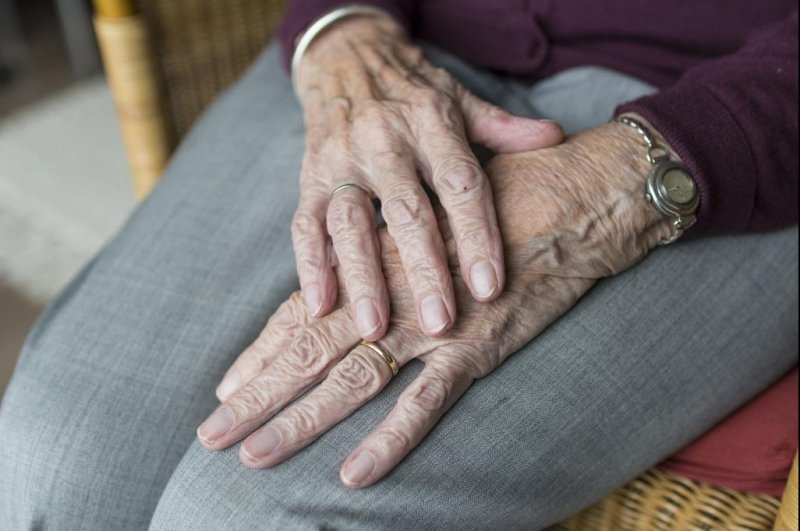A review of studies found psychological intervention provided some relief among older adults' chronic pain, according to a review of studies. Photo by sabinevanerp/{link:pixabay:"https://pixabay.com/en/hand-hands-old-old-age-ipad-2906434/"}
May 7 (UPI) -- Psychological intervention provided some relief among older adults' chronic pain, according to a review of studies.
Researchers at Cornell Medicine, Eastern Virginia Medical School in Norfolk and VU University Medical Center in Amsterdam, the Netherlands, examined 22 studies with 2,608 participants. Their findings were published Monday in the Journal of the American Medical Association Internal Medicine.
The studies included psychological intervention using cognitive behavioral approaches alone, or in combination with another strategy. The mean age of participants was 71.9 years old, with a mean intervention period of 9.4 weeks and mean number of treatment sessions of 8.4.
"Among older adults with chronic pain, psychological therapies have a small, but statistically significant, benefit for reducing pain and catastrophizing beliefs and improving self-efficacy for managing pain," the researchers wrote.
The authors noted that chronic noncancer pain is common among older adults and medication doesn't always help much. They noted psychological treatments are recommended, but little information is available regarding the effects in older adults.
The researchers point out that use of psychological therapy as treatment for chronic pain conditions has grown in recent years, especially with the burgeoning opioid epidemic across the country.
The Centers for Disease Control and Prevention guidelines encourage clinicians to prescribe nonpharmacologic therapies, such as cognitive behavioral therapy, for patients with chronic pain.
"Our results are relevant to the management of chronic pain in older adults by demonstrating that psychological interventions have salutary, albeit small, benefits for treatment of pain, catastrophizing beliefs, and self-efficacy," the researchers wrote. "Some older patients with chronic pain may receive substantial benefit through psychological therapy, while others may not benefit."















